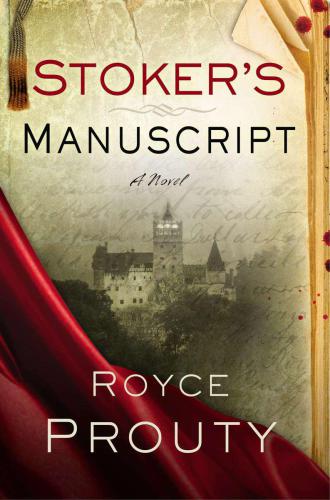
Stoker's Manuscript
کتاب های مرتبط
- اطلاعات
- نقد و بررسی
- دیدگاه کاربران
نقد و بررسی

April 22, 2013
Reviewed by Dacre Stoker. Prouty’s debut, a riveting novel of supernatural suspense, deftly mixes fact and fiction involving the manuscript of Bram Stoker’s great vampire novel, Dracula (1897). In present-day Chicago, rare book dealer Joseph Barkeley receives a phone call from a gentleman with an Eastern European accent who wants him to authenticate Stoker’s original Dracula manuscript, which is due to be sold at auction by Christie’s. An anonymous client wishes to buy the manuscript. Barkeley eagerly agrees to the caller’s terms. A successful bid on his client’s behalf will mean a generous commission for him as well as a trip to Romania, which happens to be Barkeley’s birthplace, to deliver the manuscript. During his research, Barkeley learns the circumstances of Dracula’s publication were not without controversy. Stoker planned to publish a prologue and epilogue with Dracula, but for some reason did not. The content of Stoker’s missing text remains unknown. The many parallels between Stoker’s Manuscript and Dracula range from subtle to overt. The unassuming Joseph Barkeley, who becomes a reluctant vampire hunter, resembles Jonathan Harker in more than name. Just as Bram’s band of heroes used new technology of the late 19th century (telegrams, phonographs, and blood transfusions) to counter the supernatural forces of Count Dracula, so does Barkeley use a GPS unit to locate ancient graves, which inexplicably the vampires cannot find on their own. Prouty seamlessly blends his new vampire characters into the well-established Transylvanian myth, complete with plausible explanations and descriptions of their origins and physiology. So convincing are these creatures that the reader will turn the page with no concern about fact-checking. Indeed, this is a real page-turner, and I quite enjoyed it as such. But to get the most out of the story, and because I am by nature a fact-checker, I read it again, to sort through any inconsistencies and separate fact from creative license. Suffice it to say, many “facts” within Prouty’s novel can be loosely linked to truths. In my opinion, this detracts nothing; rather, I am impressed with the author’s ability to concoct such a believable pseudo-reality. For example, I believe the publishing house fire that destroyed Bram’s intended prologue and epilogue was simply added by Prouty to existing rumors to frame the story. Bram did keep notes over the seven years he wrote Dracula, which now reside at the Rosenbach Museum in Philadelphia, Pa., while the one known typed Dracula manuscript is in a private collection on the West Coast. The closest thing to a prologue is the short story entitled “Dracula’s Guest,” released after Bram’s death. Bram’s altered ending to Dracula, which appears in the typed manuscript, likely inspired Prouty’s epilogue, because to date, no mention of any true epilogue has been found. Stoker’s Manuscript illustrates the Dracula legacy: confounding coincidences of history, missing documents, and unanswerable questions about Bram Stoker’s intentions. Agent: Scott Miller, Trident Literary Group (June) Dacre Stoker, a great-grand-nephew of Bram Stoker, is the coauthor of Dracula the Un-Dead (Dutton, 2009) and co-editor of Bram Stoker’s Lost Journal (Robson, 2012).

April 15, 2013
California resident Prouty's debut novel will stoke the interest of Dracula lovers everywhere. Joseph Barkeley seems like an ordinary guy leading an uneventful life. He owns a used bookstore in Chicago and is an expert in authenticating manuscripts. One day, he is offered a great deal of money to locate missing parts of Bram Stoker's original Dracula manuscript, an assignment that takes him to Romania, where he and his brother had been orphaned. The yoke of communism has been lifted, and underneath remains a countryside that is still fearful of vampires and the undead. Although Barkeley knows Stoker's novel is fiction, it turns out to be more factual than he might have expected. Soon, a vampire is out to get him. Barkeley, a Christian, wears a crucifix, but that may not be enough to save him. Prouty offers vivid descriptions of ancient castles and graveyards. The prose is prim and never off-color, sprinkled with Romanian phrases to add exotic flavor to the conversations. Expect some violence--what's a vampire novel without a few impaled bodies?--but it's not especially graphic. And forget about sex, except for brief mention of a marital coupling in the privacy of a crypt. As for Barkeley, he blushes at the thought of a pretty woman being attracted to him. In all, a fun read, well-plotted but with no stunning revelations. An obvious choice for fans of Dracula and Frankenstein and for anyone whose reading tastes extend into the realm of superstition.
COPYRIGHT(2013) Kirkus Reviews, ALL RIGHTS RESERVED.

























دیدگاه کاربران